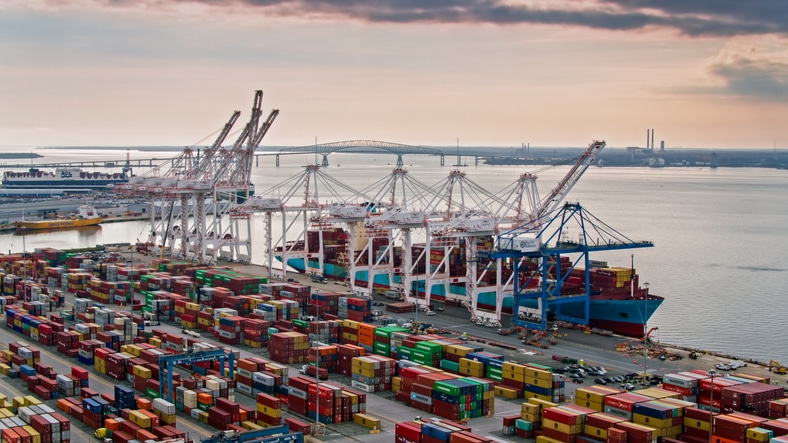Maersk Line Limited, the company that time chartered the cargo ship that crashed into the Francis Scott Key Bridge in Baltimore, was sanctioned by the Department of Labor (DOL) in July 2023 for retaliating against a whistleblower who raised safety concerns.
Maersk confirmed with WNN that “the container vessel ‘DALI,’ operated by charter vessel company Synergy Group, is time chartered by ‘Maersk’ and is carrying Maersk customers’ cargo.” Maersk clarified that “No Maersk crew and personnel were onboard the vessel.”
The DOL’s Occupational Safety and Health Administration (OSHA) found that Maersk illegally fired a seaman who reported a variety of safety concerns to the U.S. Coast Guard in December 2020. OSHA determined that Maersk violated the Seaman’s Protection Act and ordered the company to reinstate the seaman and pay $457,759 in back wages, interest, compensatory damages and $250,000 in punitive damages.
According to the DOL, the concerns reported by the seaman included:
- “Gear used to release lifeboats did not work properly and needed repair and replacement.
- On several occasions, a ship’s trainee was alone and unsupervised while on ship’s watch, including during one incident when a fuel and oil spill occurred that took the crew two days to clean, and could have created an environmental spill.
- Crew members possessing and possibly consuming alcohol onboard.
- Two leaks in the starboard tunnel, found during an inspection, and the bilge system caused flooding in cargo holds and needed need of repair.
- Rusted, corroded and broken deck sockets needed repair and replacement.”
The DOL also ordered Maersk to revise its policies which prohibited employees from notifying the company before blowing the whistle to the Coast Guard or other authorities.
“Federal law protects a seaman’s right to report safety concerns to federal regulatory agencies, a fact every maritime industry employer and vessel owner must know,” said OSHA Regional Administrator Eric S. Harbin in Dallas. “Failure to recognize these rights can instill a culture of intimidation that could lead to disastrous or deadly consequences. The order underscores our commitment to enforcing whistleblower rights that protect seamen.”
“The U.S. Coast Guard is committed to partnering with OSHA in protecting whistleblowers and to vigorously enforce the Seaman’s Protection Act. We encourage everyone within the maritime domain to support and abide by these protections,” said Rear Admiral and Assistant Commandant for Prevention Policy for the U.S. Coast Guard Wayne Arguin. “An open and transparent safety culture within the maritime industry is vital to protecting the lives of mariners and the public. Together, we can make the maritime workplace safe for everyone.”
“Maersk Line, Limited (MLL) disagrees with, and is disappointed by the Regional Administrator’s opinion in this case and fully intends to appeal this flawed decision,” a spokesperson for Maersk told WNN. “MLL is proud of its safety culture and its highest priority remains the safety and security of our mariners and shoreside colleagues. MLL cooperated fully with the U.S. Coast Guard in its investigation of these same events and the U.S. Coast Guard’s official report ‘[i]dentified no evidence that the vessel/crew was not taking appropriate actions to address any safety or equipment concerns.’ The U.S. Coast Guard’s report further concluded that it discovered no evidence of violations of law or regulation.”
OSHA’s Whistleblower Protection Program enforces the whistleblower protections of over 20 different federal laws, including the Seaman’s Protection Act.
In a July 26 blog post entitled “Why Whistleblowers Matter,” the Department of Labor highlighted Maersk Line whistleblower case: “As we mark National Whistleblower Day on July 30, we thank this whistleblower and the many others for their courage in speaking out, and for their contributions in ensuring safer conditions for themselves and their co-workers. Because of their actions, lives have been saved.”
Further Reading:
Seaman Whistleblower Receives Over $700K Following OSHA Order
Correction: An earlier version of this story stated that Maersk is “the company that chartered the cargo ship that crashed into the Francis Scott Key Bridge in Baltimore.” Maersk clarified that they “time charted” the vessel.
